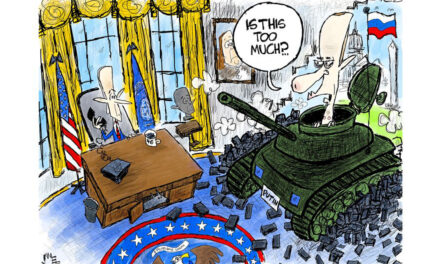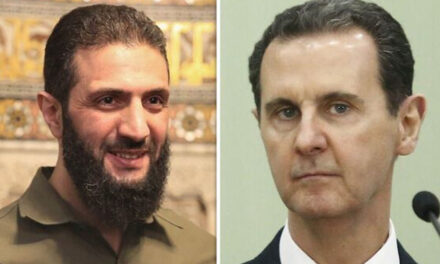
Jail Time for Hillary Clinton? FBI Ramps up Investigation
Hillary can run, but she can’t hide. As the Democratic frontrunner tries to put the now-infamous email scandal behind her, the FBI has ramped up its investigation, looking into the Espionage Act as well as US Code 18, Section 1001 to find out if Clinton has indeed risked classified information.
“Former FBI and Justice officials familiar with the investigative procedures on such matters said the agency must determine two main things: whether the use of an outside email system posed any risks to national security secrets and if so if anyone was responsible for exposing classified information,” reports Politico.
According to Fox News, FBI “agents are looking at US Code 18, Section 1001, which pertains to ‘materially false’ statements given [by government employees] either in writing, orally, or through a third party. Violations also include pressuring a third party to conspire in a cover-up. Each felony violation is subject to five years in prison.”
Speaking of cover-ups, Fox News reports: “At least four classified Clinton emails had their markings changed to a category that shields the content from Congress and the public, in what State Department whistleblowers believed to be an effort to hide the true extent of classified information on the former secretary of state’s server.”
Section 1001 is used when individuals make false or misleading statements that later cause government agents to spend extra time and resources. The statute applies to any statement, not only those made under oath.
Timothy Gill, a former FBI agent, says that Section 1001 “punishes individuals who are not direct and fulsome in their answers. The problem for a defendant is when their statements cause the bureau to expend more time, energy, resources to de-conflict their statements with the evidence.” You can say that again. The State Department has spent countless hours, days, and months examining the emails Clinton was forced to turn over.
As to false statements, Clinton originally said: “I did not email any classified material to anyone on my email. There is no classified material.” She later amended her statement, explaining that all material sent and/or received as not “marked classified at the time.”
The FBI is also looking into the Espionage Act in relation to “gross negligence” in the way Hillary handled information pertaining to national defense. The former Secretary of State was well-aware of her duty to protect this type of information – and in fact was made to sign two or more non-disclosure agreements when she took office in 2009.
Nonetheless, she decided to send classified information using a secret server – a server that could easily be hacked. She later surrendered the server to her attorney, who did not have clearance to view the information, and to an IT firm in Denver, whose employees also lacked clearance.
Section 1001 was used to bust Martha Stewart as well as CIA director Gen. David Petraeus, who was indicted and convicted earlier this year for a far smaller breach of security than what Hillary has done. So far, the FBI has found over 600 emails containing classified information.
Not everyone is cooperating with the feds in this top-secret investigation. The Justice Department remains unsure of how to deal with Bryan Pagliano, the IT expert who oversaw the homebrew server. When subpoenaed by Congress a few months ago, Pagliano took the Fifth and refused to answer any questions.


























If ya'll say so, E.D., then it must be so. MSNBC vs PBP challenge and compare. Scandals, they pop up…
Whoops, I meant Robert.
I was referring to Roger being mentally unhinged. He's the one that was ranting. Hell, I support Trump. I don't…
Your daughter
I noted in another post that if I were king of the forest....... I would pardon all the non-violent 1/6…